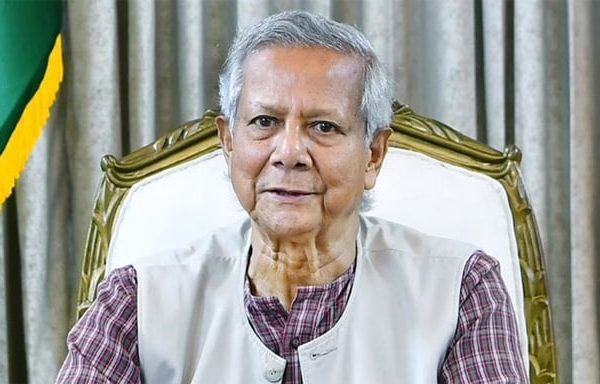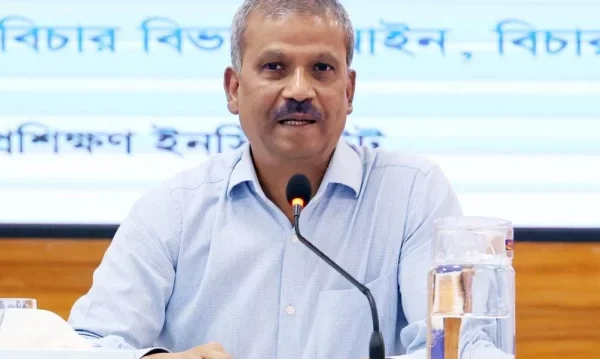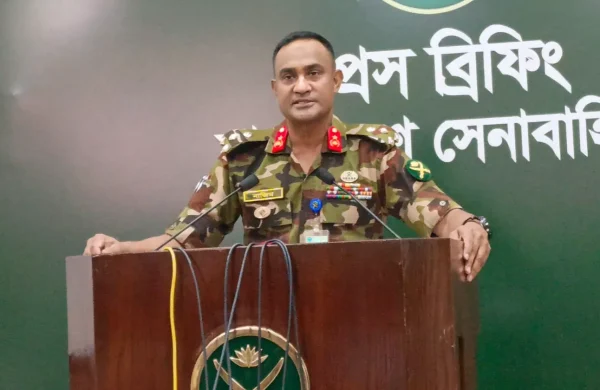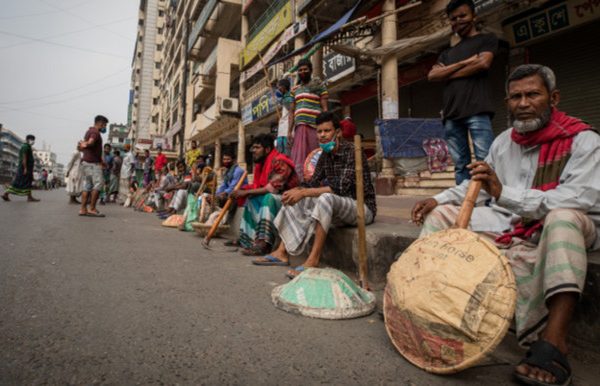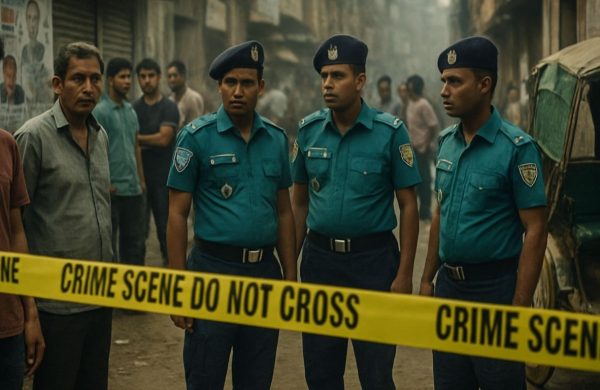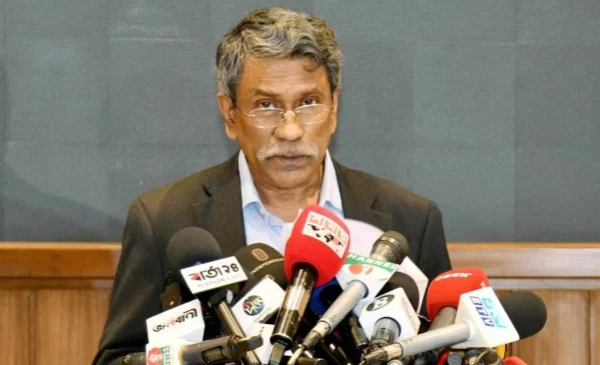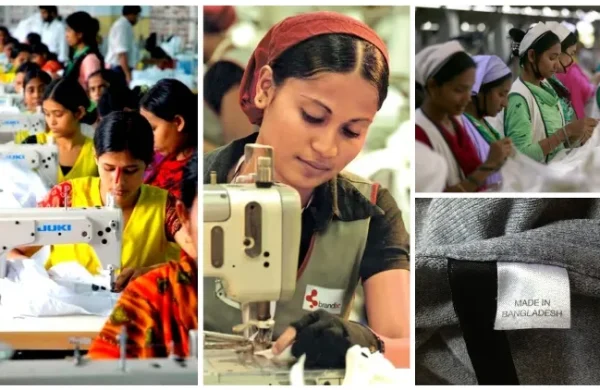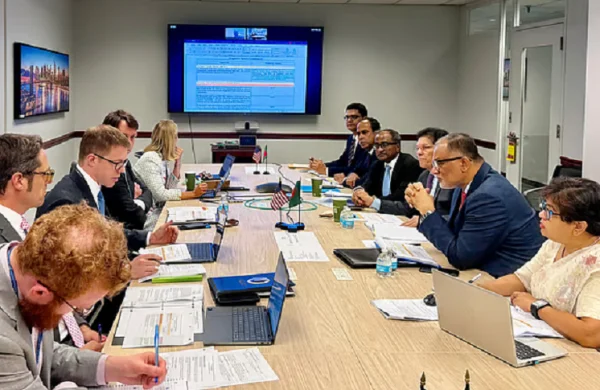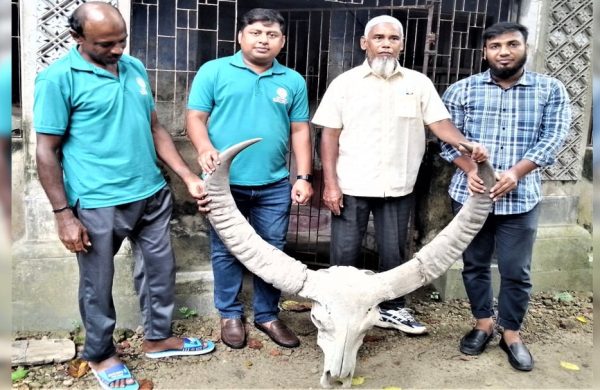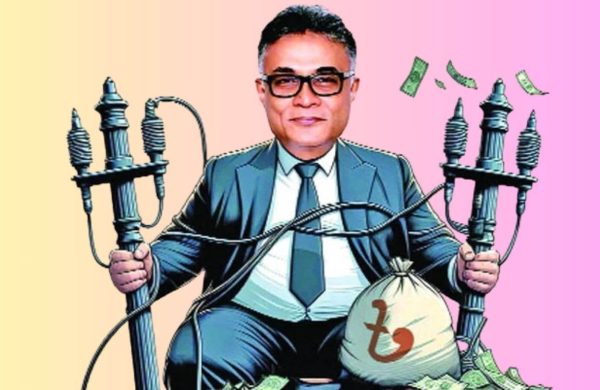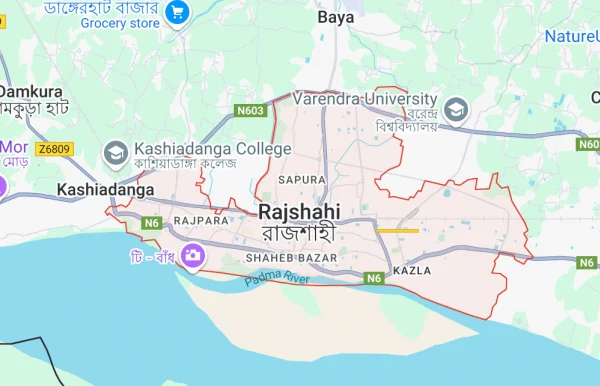Too many underaged girls getting married in Bangladesh
- Update Time : Sunday, December 15, 2024
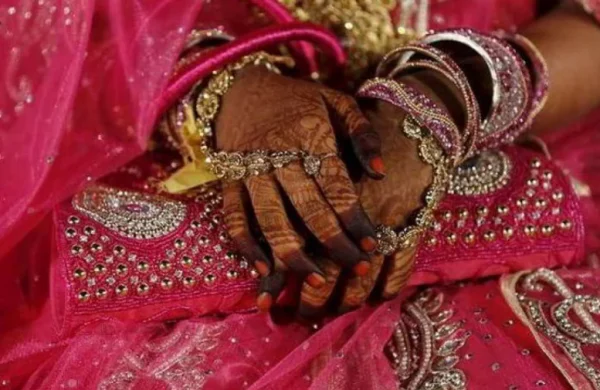
TDS Desk
With half of all girls in Bangladesh still getting married before the age of 18, two United Nations agencies have expressed a sense of urgency to do more to arrest the perilous trend.
With a focus on saving girls´ lives, the Steering Committee of the UNFPA-Unicef Global Programme to End Child Marriage (GPECM) visited Bangladesh from December 8 to 12, underscoring an urgent call to action to eliminate child marriage in Bangladesh, one of the world’s most affected regions.
The UNFPA-Unicef joint mission notes: “While significant progress has been made in reducing child marriage rates, 51% of Bangladeshi girls still marry before the age of 18.”
“Child marriage robs girls of their childhood and threatens their well-being. Girls who marry before 18 are more likely to experience domestic violence and less likely to remain in school. They have worse economic and health outcomes than their unmarried peers, which are eventually passed down to their own children, straining a country’s capacity to provide quality health and education services,” states a release issued upon completion of the visit.
In 2016, Unicef, together with UNFPA, launched the global program – GPECM – to tackle child marriage in 12 of the most prevalent countries: Bangladesh, Burkina Faso, Ethiopia, Ghana, India, Mozambique, Nepal, Niger, Sierra Leone, Uganda, Yemen and Zambia.
While launching the 3rd phase of GPECM in Dhaka in June this year, UNFPA Bangladesh’s then representative Kristine Blokhus said, the rate of reduction of child marriage in Bangladesh was only 2.1% per year. To meet Sustainable Development Goal-5, which calls for the elimination of child marriage by 2030, Bangladesh must accelerate its efforts by 22 times.
During the previous phases of GPECM, the UNFPA and Unicef collaborated closely to assist the government in reaching 5.5 million girls, analyzing factors driving child marriage, empowering grassroots organizations, and strengthening services and protection for vulnerable girls in Bangladesh.
Over the next four years (2024-2027), UNFPA and Unicef aims to achieve significant milestones through the joint workplan by engaging over 1.2 million adolescent girls (aged 10-19) in life skills or comprehensive sexuality education interventions.
Additionally, over 6,100,000 individuals will be reached with mass media messaging on child marriage, the rights of adolescent girls, and gender equality. The program will also involve 2,174,300 individuals and 1,206,413 boys and men in group education and dialogue sessions in addressing harmful masculinities and gender norms.
MISSION INTERACTS WITH ACTORS IN HI-PREVALENCE DISTRICTS
An official release says, the visit of the two UN agencies’ joint mission demonstrated a renewed commitment to address systemic drivers of child marriage, empower adolescent girls, and strengthen social protection and child protection systems, and prioritize the National Action Plan to End Child Marriage (NAPECM), ensuring it is adequately funded.
During the 5-day visit, the delegation interacted with government officials, civil society organizations, local leaders, and communities across high-prevalence districts to learn about successes and challenges in combating child marriage. Field visits highlighted innovative programs, including those aimed at empowering girls, including young mothers through education, life skills, employability skills and protection mechanisms.
The Global Programme Chair, Sheema Sen Gupta, said: “Through strong collaboration with the Interim Government, UN agencies, and civil society, Bangladesh has shown that progress is possible even in the face of significant challenges. Ending child marriage requires collective action, and we are here to amplify these efforts. The realization of the NAPECM, ensuring that it is fully resourced and the legal framework is improved, would create a cascade effect in ending this scourge in the country.”
The Steering Committee’s visit coincided with the 16 Days of Activism Against Gender-Based Violence, reaffirming the urgency of addressing child marriage as a form of violence against children and a violation of human rights.
Discussions focused on scaling up gender-sensitive approaches, engaging men and boys as allies, and integrating child marriage prevention into broader protection and poverty reduction strategies.
UNFPA Representative in Bangladesh, Masaki Watabe, said: “Ending child marriage is about creating opportunities for girls to lead safe, healthy, and empowered lives. UNFPA is committed to supporting comprehensive approaches that prioritize sexual and reproductive health and rights, life skills education, and community engagement to transform harmful norms.”
Unicef Representative in Bangladesh, Rana Flowers, said: “Child marriage is not only a violation of children’s rights but also a barrier to sustainable development. The voices of girls must be central to our collective action to create a future where every child can thrive.”
The UNFPA-Unicef joint mission’s visit is a collective and urgent appeal to all stakeholders – government, civil society, private sector, and the international community – for expanded partnerships to accelerate progress in eliminating child marriage. Source: DT


